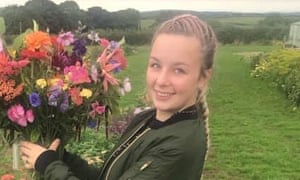In lockdown a Facebook post by Eleanor Williams went viral. In it the young woman showed her badly beaten face, injured hand – and claimed she was the victim of a grooming gang run by Asian men. Her post caught the attention not just of her local community in Barrow-in-Furness, but people across the country.
A campaign was launched, tens of thousands of pounds were raised and people started displaying purple elephants to show their support for “justice for Ellie”. Rallies began, then reprisals. A list circulating on social media with names and businesses said to be linked to Williams’ “ordeal” led to homes and Asian-owned businesses being attacked. Hate crimes tripled in the area.
Yet at the time she wrote the post Williams had been arrested after making false rape allegations against four men. And, this week, Williams was found guilty of perverting the course of justice. Jurors heard her injuries were self-inflicted, the grooming gang was made up and the men she had accused – three white men and one British Asian man – were innocent people whose lives had been turned upside down.
The Guardian’s editor for the north of England, Helen Pidd, has been following the case for three years. She listens to recordings of Williams being interviewed by police, hears from those hurt by her allegations – and speaks to a former school friend of Williams who was baffled to find Williams had named her as a grooming victim. And she asks why the young woman told lies that had such terrible consequences – and why so many people were willing to believe her.


 1 year ago
64
1 year ago
64










 English (US)
English (US)